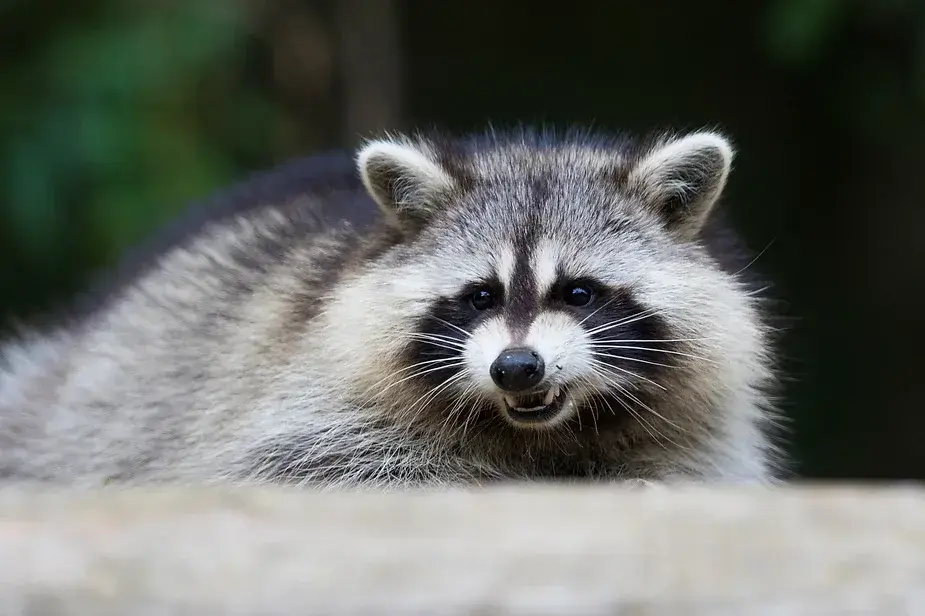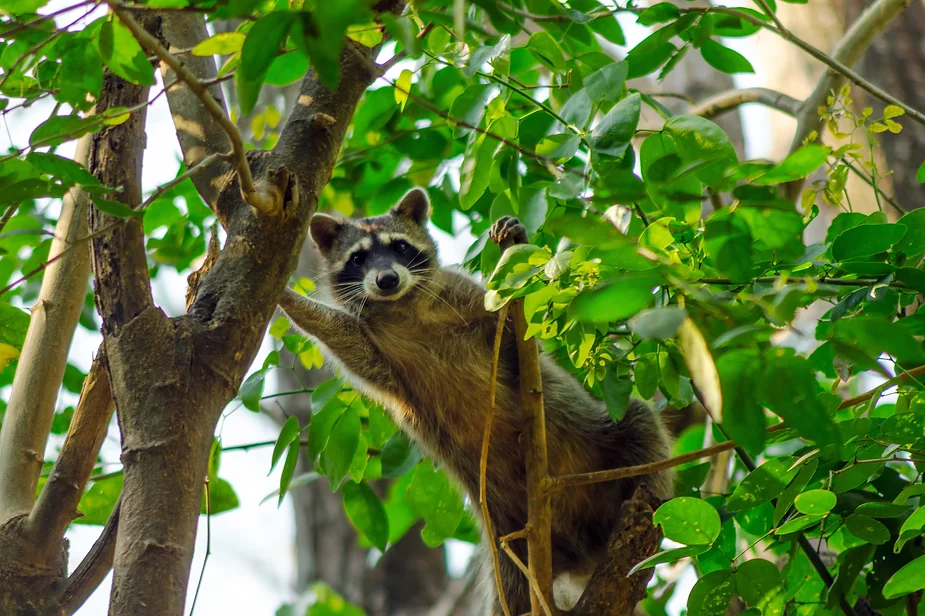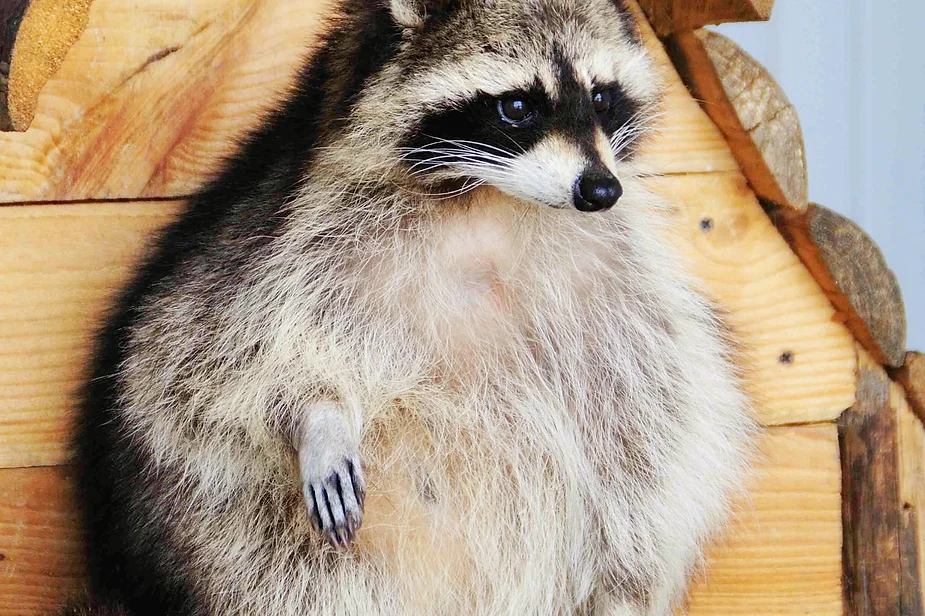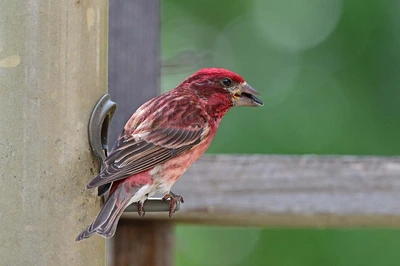
How to Keep Racoons Out of Your Yard
These masked bandits look like cuddly pets; however, they can do extensive property damage. There are many options for ridding your property of these pests.
Racoons are nocturnal and are attracted to ponds, garbage, compost, bird feeders, pet food left outdoors, and fruit trees. If you find any evidence that racoons are in your backyard you will want to remove them immediately.
Raccoons are primarily active at night, if seen during the day near your home, it is important to keep a safe distance. They can be aggressive if they feel threatened.
Racoons may carry roundworm, rabies, leptospirosis, and distemper. Due to safety concerns, contact your local animal control if all other methods to remove racoons from your property have been exhausted. Extreme caution is advised to avoid any contact with feces during efforts to remove racoons.
Adult racoons can weigh up to 16 kg and range in length up to 90 cm. they are easily identified by their black face mask and their distinctive tail, which has alternating yellow and brown rings. The body fur has a salt and pepper appearance.
Ever set the trash out at night only to wake up the next morning and find the cans knocked over and trash thrown around the yard? What a mess! These highly intelligent and very curious little bandits can destroy vegetable gardens, rummage through your trash, and even have a tendency to make a home in your attic if they can get access.
Raccoons will often enter homes in the winter and spring, to escape the cold or to nest and raise their young. Racoons have one litter a year and the average litter is 3 to 6 kits. Young are born in spring after a two month gestation period.

Prevention:
Cute at first, but these critters can cause some serious destruction around your property. Though they aren't picky eaters, these adept critters can crack open eggs and open unlocked doors, jars, and the like with their hand-like front feet. This makes getting rid of a raccoon a definite challenge, but one for which there are several solutions!
- Strap down the lid of your garbage can, bring pet food and bird seed inside at night, lock dog doors and seal up holes and openings in your home. Clean up fruit that has fallen into your yard from fruit trees. Racoons are often found in backyards because of their willingness to eat just about anything.
- Install an electric fence around your garden, hen house or pond to keep racoons out of these areas. Racoons are sensitive to electric shock and quickly learn to avoid electric fences. Use a three wire fence with the wire spaced at 10 cm, 20 cm and 33 cm above the ground.
- Repellents containing hot pepper can be used in areas of your property visited by these curious animals. They send a harmless, yet strong signal to stay off your property.
- Raccoons get into chimneys by climbing up trees and walking off a branch onto your roof. Keep trees and bushes at least 2 feet below or 3 feet away from your roof. Seal up entry points and place raccoon proof caps on chimneys.
- Purchase metal or plastic trash cans that are difficult to open. If you tie down your garbage can lids with, rope or bungee cords, the raccoons will learn that they cannot get into your trash. Raccoons are often drawn to a particular backyard due to food found in open trash containers.
- Try leaving a radio outside your home, raccoons try to avoid humans and the sound of people talking may be enough to keep them away.
- Scare tactics, including sprinklers, loud noises, and motion detector lights, may deter raccoons from invading your backyard. Raccoons are smart, however, and may return once they realize there is no real danger.
- Store livestock feed in containers with tight fitting lids and secure with a bungee cord. Racoons contaminate feed, seed, and supplements with their feces and urine.
- Racoons will attack poultry and are able to kill birds as large as turkeys. Signs of raccoon predation on poultry include carcasses with missing heads, bites on the back, torn necks and breasts, and feeding on the animal.
- Protect poultry by completely enclosing their pens with wire mesh, including the doors, windows and roof. Raccoons are very adept at gaining access to weak or open areas of a poultry pen.
- Simply patching a hole made by a raccoon does not work as they will rip it open to regain entry or get to their young. The most effective way is to remove all animals and completely seal the entire building from further entry.
- If you want to get rid of raccoons make sure your house is secure with no holes or openings and all dog doors are locked. If raccoons are under your shed, house or deck you can install a steel mesh barrier around area preventing them from entering.
- Raccoons will dig up the ground looking for worms, and grubs, causing damage to lawns. This damage can often be reduced by applying a grub treatment to your lawn, eliminating the food source.

Trapping
The most effective way to remove racoons from your backyard is to trap them with a live animal trap. Check with your local animal control first about the precautions you should take when trapping live raccoons.
No poison is registered in Canada for raccoon control.
If you decide to trap your problem raccoon, be sure to use a trap that is strong, and larger enough to contain them. Racoons are strong and crafty and have a way of breaking out of traps. Traps need to be at least 32 inches long and 12 inches wide to successfully trap a raccoon. Place the trap in an area that the raccoon frequently travels.
- Monitor the trap so you can release the racoon as soon as possible after it’s trapped. Place a blanket over the trap during transportation to calm the raccoon down.
- Relocate the raccoons to a wooded area, away from any residential homes, and far enough away to ensure they don’t come back to your property.
- Be careful when trapping female raccoons, there could be baby raccoons nearby, and they will need to be trapped and relocated close to the mother. Mother racoons will do just about anything to get to their young if separated and will also try to get back into the den site.
- Sometimes other animals are caught in the trap so be prepared if you find a stray cat or even a skunk.
- A properly licensed trapper, who knows wildlife, has experience, is vaccinated against rabies, and who can do it safely and legally, is a good option.
Baits
Raccoons can be difficult to catch because of their intelligence, but with these recommended baits, and a live trap you should catch your raccoon quickly. Trapping success increases if bait is scattered on the ground leading up to the trap.
- Fish, fresh or canned
- Honey or sugar covered vegetables
- Smoked fish
- Watermelon
- Sweet corn
- Cooked fatty meat
- Crisp bacon
- Marshmallows are a favourite!
Have more questions? Visit your local Buckerfield's and we'll be happy to help!



